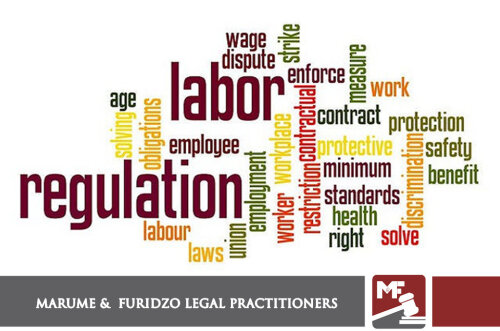Best Child Custody Lawyers in Zimbabwe
Share your needs with us, get contacted by law firms.
Free. Takes 2 min.
Free Guide to Hiring a Family Lawyer
Or refine your search by selecting a city:
List of the best lawyers in Zimbabwe
About Child Custody Law in Zimbabwe
Child custody law in Zimbabwe is governed by a combination of the Children's Act and related family law legislation that is designed to protect the welfare of minors. The courts prioritize the best interests of the child, ensuring their protection, maintenance, and access to both parents. In Zimbabwe, custody decisions can be influenced by a variety of factors, including the child's age, physical and emotional health, and the ability of each parent to meet the child's needs.
Why You May Need a Lawyer
There are several common situations where you may need legal assistance in child custody matters:
- Disputes over custody or visitation rights during a divorce or separation.
- Modification of existing custody agreements due to changing circumstances.
- Enforcement of custody arrangements if one parent is not complying.
- Situations involving allegations of abuse or neglect.
- Seeking legal guardianship or adoption of a child.
Having a lawyer can help navigate the complexities of family law, advocate on your behalf, and ensure the best possible outcome for your child.
Local Laws Overview
Zimbabwe's legal system incorporates both customary and statutory laws in matters of child custody. Key local laws relevant to child custody include:
- The Children's Act: This act outlines the rights and protections afforded to children, emphasizing their well-being and the responsibilities of guardians.
- Maintenance Act: This act requires parents to provide for the financial support of their children, which can be part of custody considerations.
- Customary Law: In some cases, traditional practices may influence custody decisions, but statutory law generally prevails if there's a conflict.
- Guardianship of Minors Act: Addresses the legal guardianship of children, focusing on their care and upbringing.
Frequently Asked Questions
What factors does the court consider in a custody case?
Courts look at the best interests of the child, including the child's age, health, and the parent's ability to meet their needs.
Can grandparents or other relatives gain custody of a child?
Yes, under certain circumstances, relatives can apply for custody or guardianship if it's in the child's best interest.
How can I modify an existing custody agreement?
You can file a petition in the court demonstrating substantial changes in circumstances since the original order was made.
What happens if one parent violates a custody order?
You can return to court to seek enforcement of the order and possibly have the violating parent held in contempt.
Can children express their own custodial preferences?
Yes, older children may be allowed to express their preferences, though the court isn't bound to honor them.
Are there different types of custody arrangements?
Yes, including shared custody, sole custody, and joint custody, each varying in how legal and physical responsibilities are divided.
Is mediation required in child custody cases?
While not mandatory, mediation is encouraged to help resolve disputes amicably before resorting to court intervention.
How long does the custody determination process take?
The duration can vary significantly, depending on the complexity of the case and the court's schedule.
Can a custody agreement be reached without going to court?
Yes, parents may reach an amicable agreement outside of court, which can then be formalized by a judge.
What is the difference between legal and physical custody?
Legal custody refers to decision-making authority regarding major aspects of the child's life, while physical custody pertains to where the child lives.
Additional Resources
For those seeking legal advice, the following resources may be helpful:
- Ministry of Justice, Legal and Parliamentary Affairs: Offers guidance on legal matters and the justice system in Zimbabwe.
- The Legal Resources Foundation: Provides legal aid and resources for individuals unable to afford private legal services.
- Zimbabwe Women Lawyers Association: Offers support and advocacy for women, particularly in family law cases.
Next Steps
If you need legal assistance with child custody in Zimbabwe, consider the following steps:
- Research and reach out to qualified family law attorneys in your area.
- Gather any relevant documentation related to your custody case.
- Consider contacting a legal aid organization if you require financial assistance with legal fees.
- Prepare a list of questions or concerns to discuss with your legal representative during consultations.
Lawzana helps you find the best lawyers and law firms in Zimbabwe through a curated and pre-screened list of qualified legal professionals. Our platform offers rankings and detailed profiles of attorneys and law firms, allowing you to compare based on practice areas, including Child Custody, experience, and client feedback.
Each profile includes a description of the firm's areas of practice, client reviews, team members and partners, year of establishment, spoken languages, office locations, contact information, social media presence, and any published articles or resources. Most firms on our platform speak English and are experienced in both local and international legal matters.
Get a quote from top-rated law firms in Zimbabwe — quickly, securely, and without unnecessary hassle.
Disclaimer:
The information provided on this page is for general informational purposes only and does not constitute legal advice. While we strive to ensure the accuracy and relevance of the content, legal information may change over time, and interpretations of the law can vary. You should always consult with a qualified legal professional for advice specific to your situation.
We disclaim all liability for actions taken or not taken based on the content of this page. If you believe any information is incorrect or outdated, please contact us, and we will review and update it where appropriate.
Browse child custody law firms by city in Zimbabwe
Refine your search by selecting a city.

















